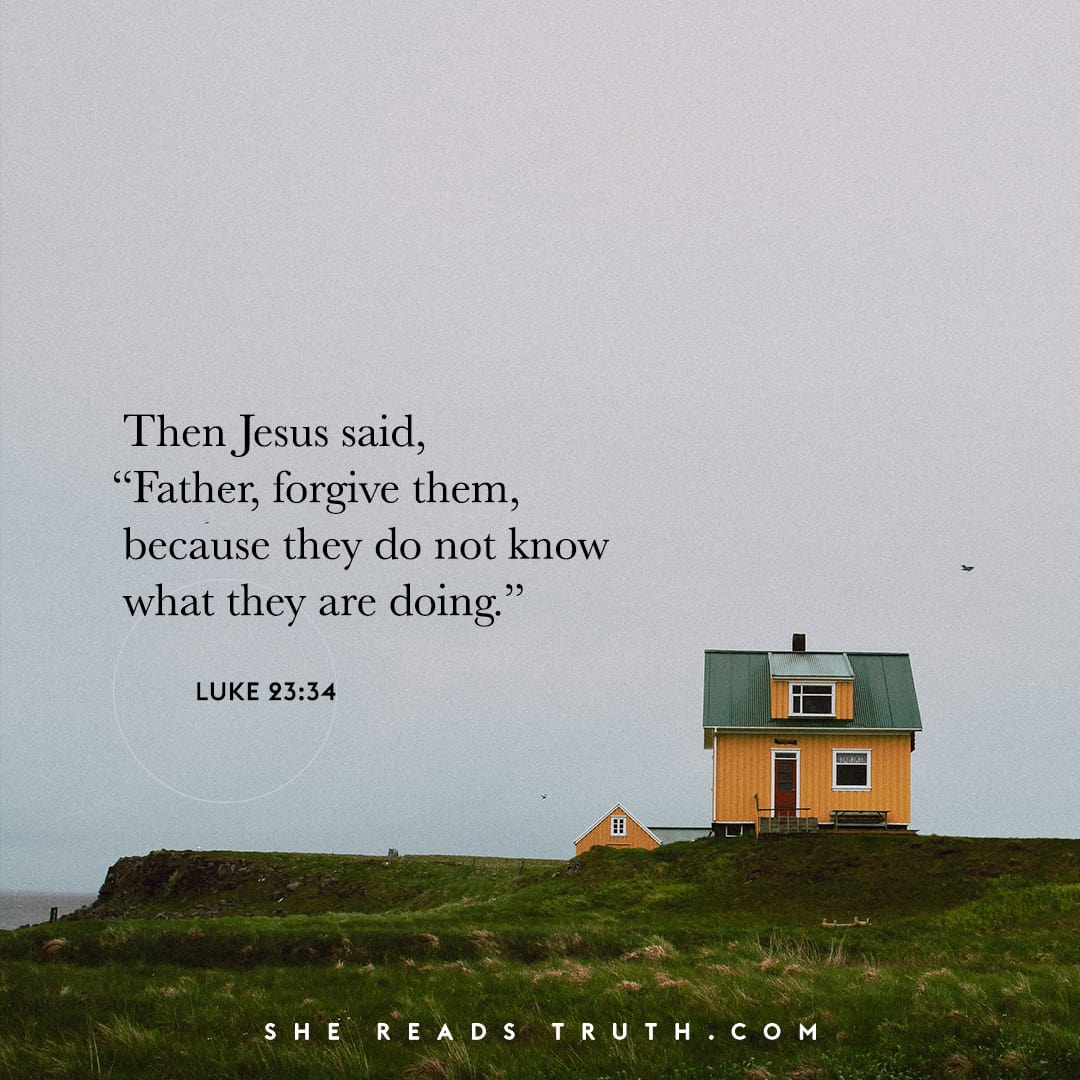The Death of Jesus
Open Your Bible
Luke 23:1-56, Psalm 38:20-21, Acts 4:23-31
BY Guest Writer
On September 11, 1934, theologian Dietrich Bonhoeffer wrote the following words in a letter to a friend:
“We must finally stop appealing to theology to justify our reserved silence about what the state is doing—for that is nothing but fear. ‘Open your mouth for the one who is voiceless’—for who in the church today still remembers that that is the least of the Bible’s demands in times such as these?”
Bonhoeffer penned this plea as the Nazi regime was gaining power, the death toll was growing, and many of his fellow Christians remained silent. He watched in horror as the German church failed to speak up and do what was right, choosing instead the false innocence of silence.
Eighty-five years later, it is easy to look back and judge. It’s easy to wonder how Christians in Germany failed so miserably. And yet, to do so is to deny one of the most common tactics of sin: shifting blame.
Blame-shifting is a thread that runs throughout Jesus’s trial in Luke 23. Pilate knows Jesus is innocent, and he does not want to execute him, and so he hands Jesus off to Herod (v.7). Herod, in turn, sends Jesus back to Pilate (v.11). Pilate then appeals to Jesus’s accusers, suggesting that a lesser punishment would be appropriate (v.16–20). But the crowds are unsatisfied. They will settle for nothing less than the death penalty. For a third time, Pilate pleads with the crowd to be reasonable (v.22), but they will not be dissuaded. Finally, Pilate finally hands Jesus over to them.
It would have been easy for Pilate to blame the crowd for Jesus’s fate. After all, he spoke up—multiple times!—but they insisted. What more could he have done? It also would have been easy for Herod to blame Pilate. After all, he didn’t kill the man. He simply handed him over to someone else.
This is what sin does. It shifts blame while insisting on its own innocence: So long as I wasn’t the one nailing Jesus to the cross, or rounding up my Jewish neighbors, or leading the lynch mob—I am innocent.
However, when we read the story of Pilate, we are reminded that God holds us to a far higher standard. The story of Pilate chastens us with the truth that a holiness built on omission, inaction, and looking the other way is no holiness at all.
In Stuart Townend’s famous hymn, “How Deep the Father’s Love for Us,” he describes the events of Luke 23 this way:
Behold the man upon a cross,
My sin upon His shoulders;
Ashamed, I hear my mocking voice
Call out among the scoffers.
It’s difficult to imagine mocking our beloved Jesus. It’s nearly impossible to envision a time when we might look into His heartbroken eyes and jeer, impossible to imagine that we might be included among those for whom He prayed, saying, “Father, forgive them, because they do not know what they are doing” (v.34). But the tragic story of Pilate reminds us that sometimes the loudest act of abandonment is choosing to say nothing at all.

Sharon Hodde Miller leads Bright City Church in Durham, NC with her husband Ike. She also holds a PhD on women and calling, and is the author of Free of Me: Why Life Is Better When It’s Not about You.
64 thoughts on "The Death of Jesus"
-
❤️



Post Comments (64)